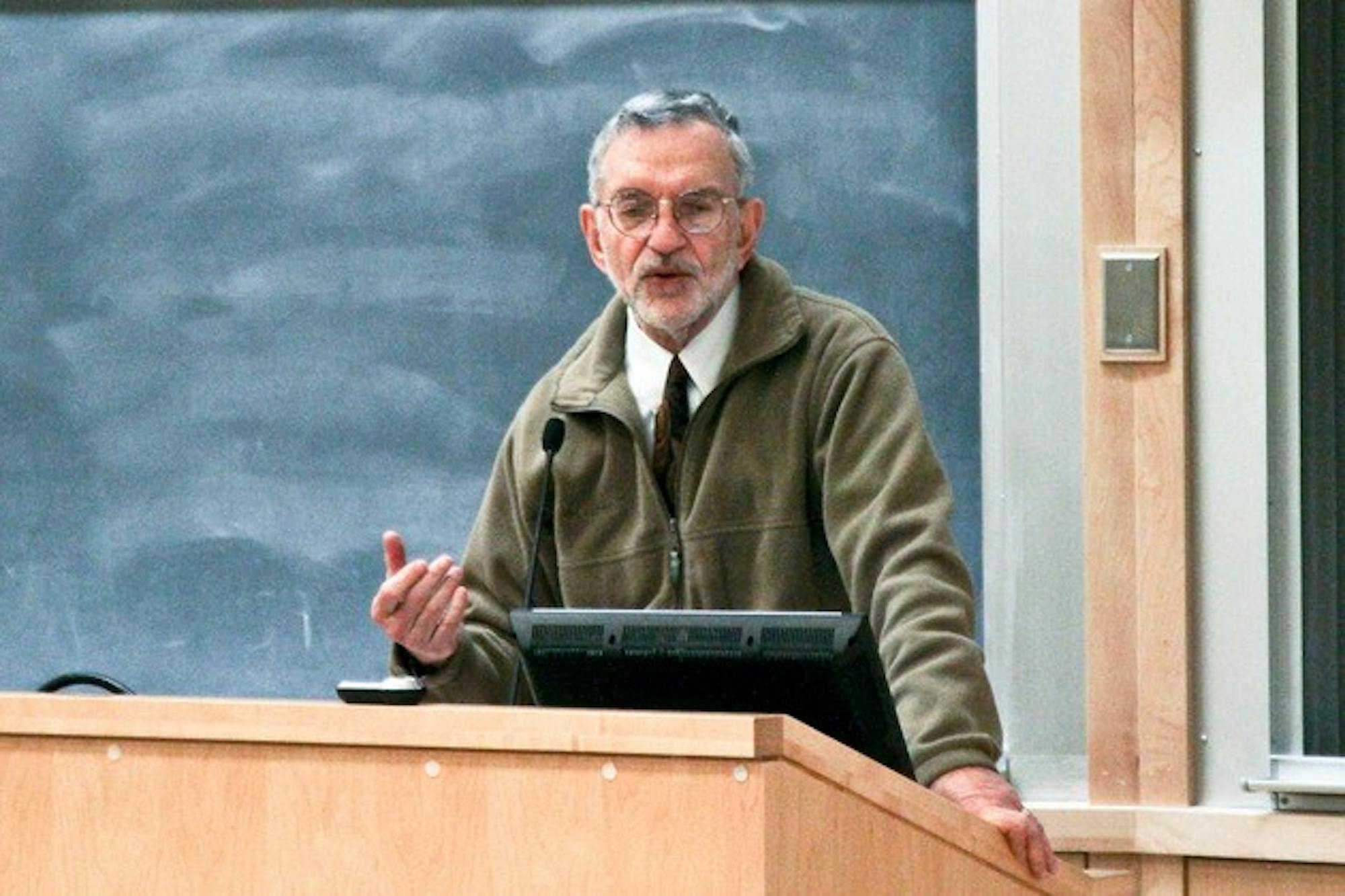Iran's development of nuclear weapons is a "very unsettling and worrisome issue, not just for the United States, but all countries in the region," Yalowitz said. The United States' approach to Iran which has consisted of a combination of dialogue and sanctions has not been effective, according to Yalowitz.
"Dialogues have not worked, and sanctions are hurting, but not hurting enough to stall their efforts," he said.
Yalowitz expressed his optimism regarding the Arab Spring, which represented a "breaking of a rigid sense that the Arab public was docile" and not susceptible to democratic efforts, he said.
Recently-ousted President of Egypt Hosni Mubarak was a strong, strategic and cooperative United States ally who kept Egypt's treaty with Israel, Yalowitz said. Upon his removal, however, the United States was faced with taking a stance on a popular uprising in Egypt that stood for American values, and that overthrew a trusted leader, Yalowitz said.
The Egyptian military is trying to hold on to the government longer than intended, which is concerning to the public, according to Yalowitz.
"If elections are too early, and free and fair, we may not like the outcome, but have to live with it," Yalowitz said. "It is very likely that the Muslim Brotherhood would probably do well another complicated relationship."
The Israeli-Egyptian Peace Treaty is the centerpiece of Israel's foreign policy, and the uprising in Egypt puts the two countries' shared border in question, creating new tensions in Egyptian-Israeli relations, according to Yalowtiz.
Yalowitz, a member of the non-partisan think tank the Council on Foreign Relations, recently participated in a discussion between Syrian and American analysts regarding the Arab League's decision to suspend Syria's membership. The widespread consensus in the international community is that the Arab League is weak, but the action to suspend Syria's League membership was unprecedented and very significant, Yalowitz said.
President of Syria Bashar al-Assad is on a "slippery slope" and has no peaceful alternative way to maintain power, which means he will likely need to use force that will escalate into a "bloody and messy" intrastate conflict, Yalowitz said.
The current situation in Syria is even more dangerous than that in Libya due to of its strategic location, according to Yalowitz. Foreign intervention may play into Assad's hands, so the Syrian opposition is trying to maintain the peace in the movement against Assad, Yalowitz said.
The Oct. 18 release of the Israeli solider Gilad Shalit, who was held captive in Gaza, reveals interesting information about the volatile situation in the Middle East, Yalowitz said. Although Israel does not typically negotiate with terrorists who keep hostages, Israeli Prime Minister Benjamin Netanyahu was willing to negotiate as the Palestinian political group, Hamas, knew that its Syrian ally was in turmoil, he said. Hamas was uncertain whether it would have Syria's future support and was therefore willing to make the deal, according to Yalowitz.
The "remarkable thing" about the Shalit situation is that "Israel, a small country, became a powerful emotive force which came together to cause an exchange to happen," he said.
The deadlock of Palestinian-Israeli discussions at the United Nations has further complicated the countries' relationship, according to Yalowitz. The recent resignation of two major peace negotiators, the Palestinian bid for statehood and the U.N. Educational, Scientific and Cultural Organization's recognition of Palestine as a state member represent the turmoil in the efforts to resolve the conflict, Yalowitz said.
Although Palestine's bid for statehood will probably fail in a vote by the U.N. Security Council with a veto from the United States, Palestine will continue to try to be a member of U.N. organizations, Yalowitz said.
Although the United States traditionally tries to bring two sides together in peace negotiations, such as through the Camp David Accords, the United States' "prospects of stimulating peace discussions are not very good" given the current circumstances regarding the Middle East, he said.
Turkey is also emerging as a "major player" in the Middle East and is serving as a model of a nation that is both Muslim and democratic, according to Yalowitz.
Yalowitz said the Turkish-Israeli relationship has taken a recent "nose-dive," citing a May 31, 2010, conflict in which a group of Turkish ships delivering goods to Gaza was intercepted and people on the ship were killed.
There is a great deal of uncertainty about the future of states such as Libya and Egypt despite their recent successes, Yalowitz said.
"Diplomacy will now get more complicated," Yalowitz said. "The public, the man on the street, plays a much more important role."
Ultimately, there are many questions about the future of Israel, its settlement policy, its growing Arab population and the greater stability in the Middle East, Yalowitz said.
"For the United States there are a lot more uncertainties in that part of the world," Yalowitz said.
The lecture, "Issues Facing Israel and the Middle East," was sponsored by Dartmouth College Hillel.




